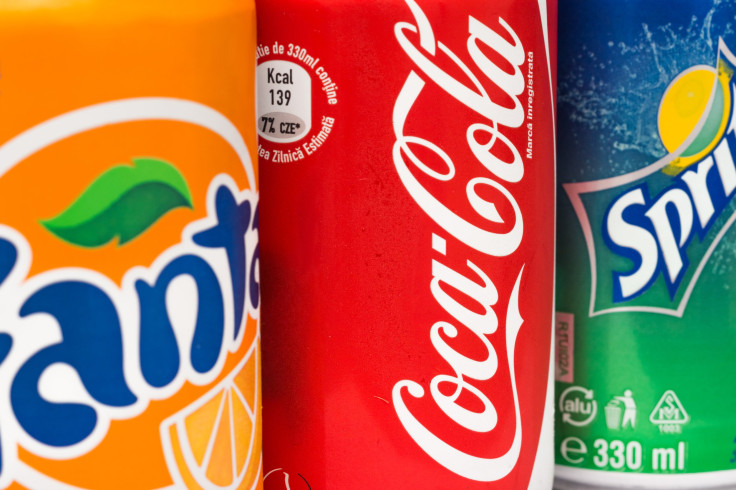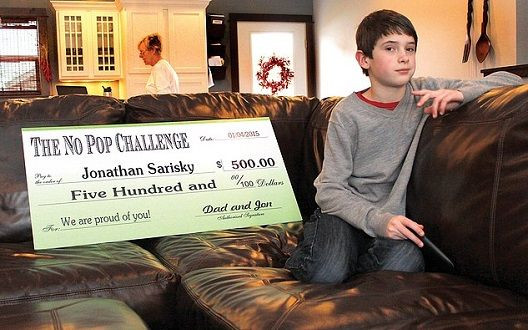Soda Pop Challenge Success: Sixth Grader Gets $500 After Quitting Soda For A Year

One year ago, Jonathan and his brother Andrew Sarisky from Montana, were given a proposition by their parents. They could either receive $100 that day or they could choose to wait an entire year for $500 dollars, if they could successfully follow one rule: They couldn’t drink sugary beverages, including soda, sports drinks, or even juice for an entire year.
“We called it the no-pop challenge,” Jon’s father Jason Sarisky said, according to the Associated Press. Jon and his brother weren’t overweight children, and sugary beverages weren’t a problem in their household. The yearlong challenge began as a way to teach the children self-discipline and the value of delayed gratification.

Jon’s brother opted for the $100 that day, but Jon decided to make a bet on his own self-perseverance and wait for the $500 dollars a year later. He remember his last soda vividly and savored the Fanta Orange. “I didn’t brush my teeth until I couldn’t taste it anymore,” Jon said.
The contract Jon's parents wrote up resembled a binding law document, equipped with legal jargon that could intimidate any 11-year-old's reading skills. “For the purposes of this contract, the term ‘drink’ means to take a liquid into the mouth by means of a cup, bottle, straw or any other such device normally used for drinking. Consuming cereal, soup, and other such liquid foods is considered ‘eating,’ not drinking.’”
The parameters of the agreement were set in stone and made very clear. Jon, who was 10 years old and in sixth grade, and his parents signed the document with a start date of Jan. 4, 2014. “Attempts to circumvent the spirit of this agreement are fraudulent and strictly prohibited,” the contract concluded. “This is a zero-tolerance agreement. Therefore, under no circumstances will child receive a ‘second chance.’ Child takes full responsibility for honoring and upholding this contract.”
Choosing immediate reward over delaying gratification is one of the root problems when it comes to overeating and impulsive decisions. The inability to choose the larger delayed gratification reward, such as the $500, is not just a simple matter of poor self-control. According to Psychology Today, humans are what they believe they are; stigmatizing themselves is counterproductive to achieving goals.
If Jon didn’t believe he had the willpower to survive a year without sugary liquids, then he wouldn’t have made it. But instead, the anticipation of the future reward activates the medial orbital frontal cortex (mOFC), which secretes dopamine, a chemical in the brain that makes receiving a reward pleasurable. The mOFC is where the value of immediate gratification versus delayed gratification is calculated, and future rewards are imagined.
Even though Jon was only 10 years old, he was able to make the decision to wait with confidence he could succeed in the challenge. He turned down drinks at friends’ houses and sat through birthday parties and the recent holiday season without a sip of anything but water or unflavored milk to keep him hydrated.
Jon's parents gave him a rightfully earned giant ceremonial check for $500. He said he wasn't sure what he would do with the money. “I might have just one pop, but I’m not going to overdo it,” Jon said, adding that soda is “OK for a splurge now and then.”
Soda should remain a splurge. Sugar-sweetened beverages are the largest source of added sugars in American children and adolescent diets, according to the Centers for Disease Control and Prevention (CDC). Childhood obesity has more than tripled in the last 30 years. Maybe more parents should start writing up yearlong sugar contracts.



























